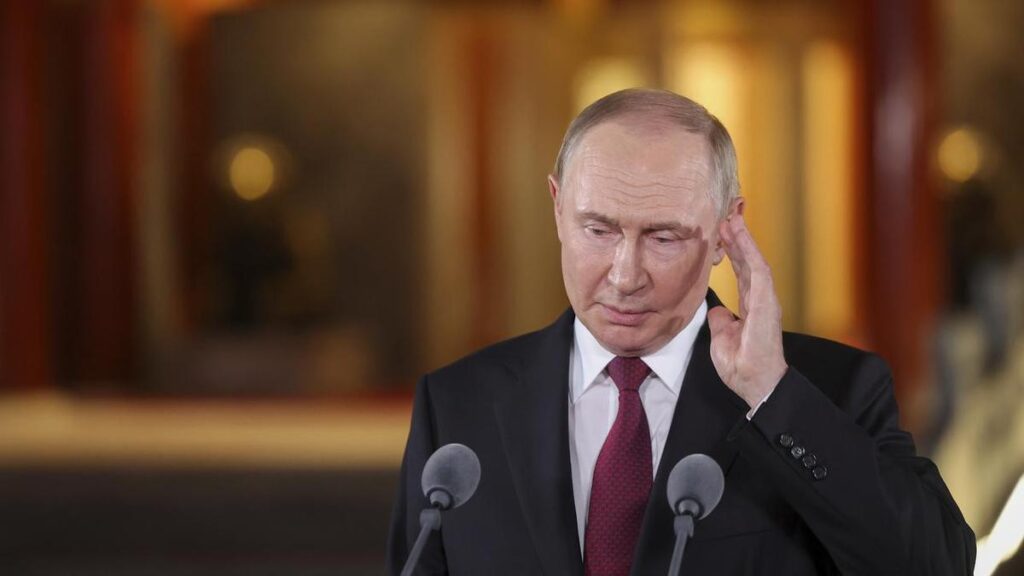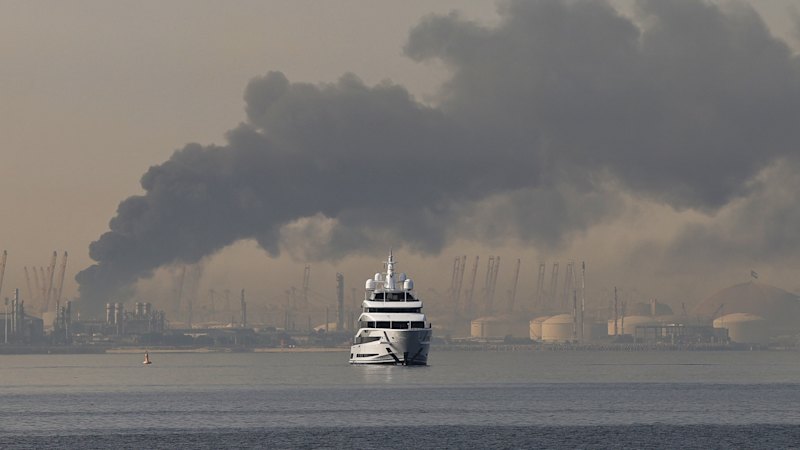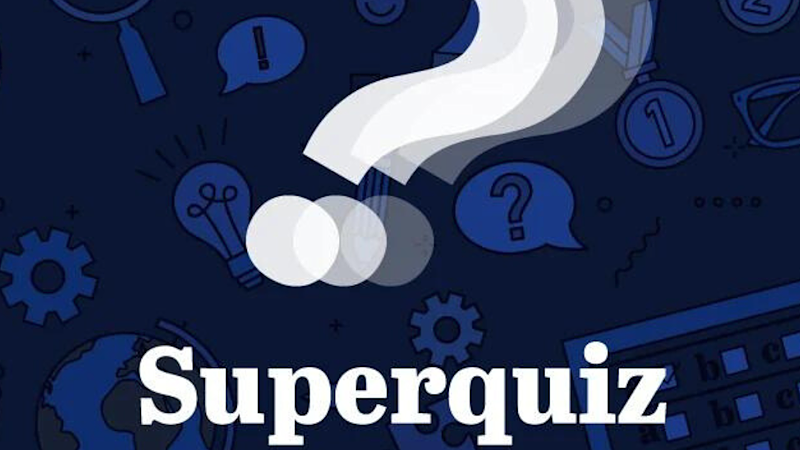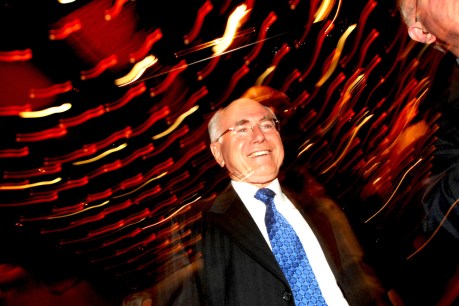
Russian President Vladimir Putin has stated that the ongoing conflict in Ukraine could potentially conclude through negotiations, provided “common sense prevails.” Speaking during a press conference in Beijing at the conclusion of his visit to China, Putin expressed a cautious optimism about diplomatic efforts, while also indicating that he is prepared to escalate military action if necessary.
Putin remarked that he perceives “a certain light at the end of the tunnel,” attributing this sentiment to what he described as the sincere efforts of the United States to facilitate a resolution. “If common sense prevails, it will be possible to agree on an acceptable solution to end this conflict,” he told reporters, referencing the current mood of the US administration under President Donald Trump. He noted that he is open to discussions but underscored that significant challenges remain.
Despite his willingness to engage in talks, Putin reiterated key demands that Ukraine must meet before any progress can be made. He insisted that Ukraine abandon its aspirations of joining the NATO military alliance, reverse policies he claims discriminate against Russian speakers and ethnic Russians, and concede full control of the Donbas region in eastern Ukraine.
To advance the dialogue, Putin suggested that Ukraine should lift martial law, conduct elections, and hold a referendum on territorial issues. He expressed a willingness to meet with Ukrainian President Volodymyr Zelenskiy in Moscow, but questioned the potential effectiveness of such a meeting. “I have never ruled out the possibility of such a meeting. But is there any point? Let’s see,” he remarked.
Zelenskiy, who has faced challenges in holding elections due to ongoing martial law, has voiced a desire to meet with Putin to discuss terms for a potential peace agreement. Nonetheless, he has urged the United States to impose further sanctions against Russia if no agreement can be reached. In response to Putin’s proposal for a meeting in Moscow, the Ukrainian government deemed it unacceptable. Foreign Minister Andrii Sybiha mentioned that at least seven countries, including Austria, the Vatican, and several Gulf states, have offered to host discussions between the two leaders.
Sybiha emphasized that these nations are serious about facilitating a meeting, stating, “President Zelenskiy is ready for such a meeting at any point in time.” He criticized Putin’s approach, suggesting that the Russian leader is making “knowingly unacceptable proposals” to avoid genuine negotiations.
As the conflict continues, the international community watches closely, awaiting developments that could shift the balance toward peace or further escalation. The situation remains fluid, with both sides standing firm on their positions while seeking avenues for dialogue.






